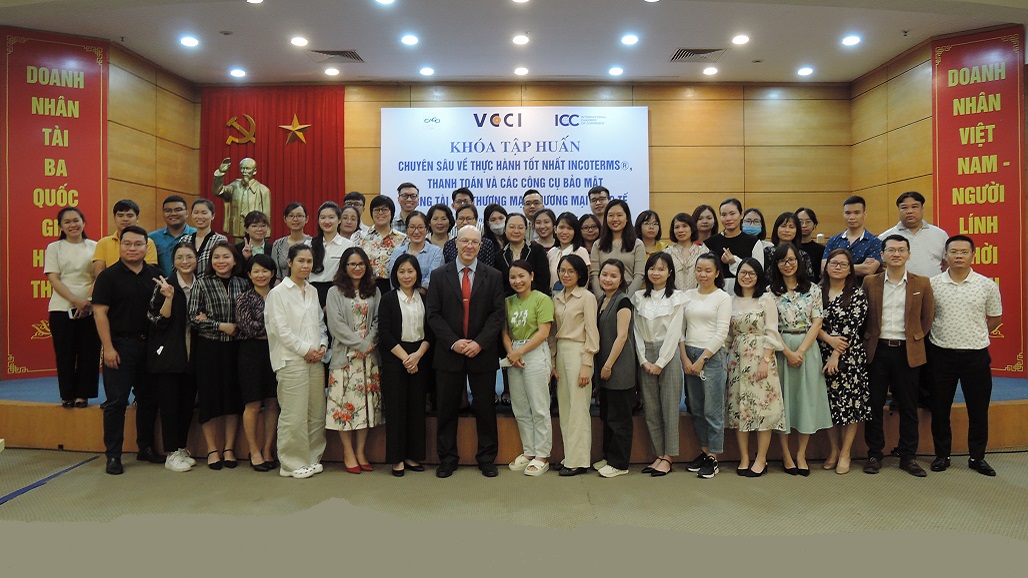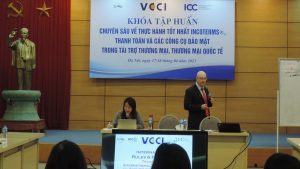Successful Trade Finance Training held in Hanoi and HCMC

Each session consisted of one full day and one half day course held in two different Vietnamese cities. The first session was held on April 17 and 18, 2023 in Hanoi, and the second session was held on April 19 and 20, 2023 in Ho Chi Minh City. The ITB-VCCI hosted training gathered mostly exporters, importers, traders, also bankers and specialists working in other related fields such as logistics, tax, customs and law.
As observed by Mr. Nguyen Ngoc Khiem – Vice Director of ITB/VCCI: “We are pleased that our long term cooperation with CACCI and ICC trainer Pavel Andrle continues. We had again great success, more than 60 participants in Hanoi and 110 participants in Ho Chi Minh City attended the course! It is wonderful that we could make it again as in-person event which makes it interactive. Participants particularly liked the focus on practical issues and real business scenarios. Recently, some vietnamese exporters suffered significant difficulties which might have been arguably prevented if the proper analysis of risks in the transaction was done and right decisions/measures were taken. The continuing learning and updating is a must and we are glad to be able to pass some of the knowledge to our members.“

First Day

Afternoon session of the first full day course then covered receivable finance and its various techniques such as factoring, invoice discounting, supply chain financing.
The last part was devoted to security instruments, i.e. demand guarantees and standby letters of credit. Trainer highlighted importance of understanding technical terms of the instruments, above all differences between demand (independent) guarantees and standbys and accessory ones (suretyships). The proper wording of a suitable instruments is the key to success. Detailed technical knowledge is a must for any user of such instruments to be well protected. ICC rules bring a lot of certainly and clearity to where otherwise quite murky practices might prevail.

Second Day

Mr. Pavel Andrle, who is ICC certified expert on Incoterms 2020, explained all eleven trade terms with main focus on choosing and describing the relevant documentation. Documents requested (e.g. by the documentary credit) often do not match the seller´s delivery obligation under the chosen Incoterm which creates significant risks for the seller or the buyer. One needs to know and take measures to minimise relevant risks.
The training course was a success given the large number of participants and the active participation of the audience that raised many relevant questions. Above all, various case studies and stories of what went wrong resonated with the audience. To know how to conduct international transactions properly is a must to minimize risks and thus avoid significant losses.
Prevention is better than cure!







